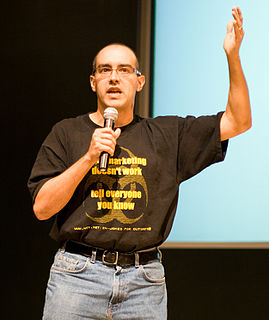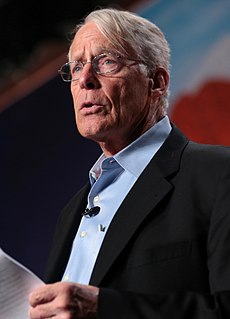A Quote by Mo Ibrahim
Remember, 2000 was the year of the dot-com bust. The telecom industry lost about $2 trillion in market capital at that time.
Related Quotes
In my opinion, the greatest misconception about the market is the idea that if you buy and hold stocks for long periods of time, you'll always make money. Let me give you some specific examples. Anyone who bought the stock market at any time between the 1896 low and the 1932 low would have lost money. In other words, there's a 36 year period in which a buy-and-hold strategy would have lost money. As a more modern example, anyone who bought the market at any time between the 1962 low and the 1974 low would have lost money.



































